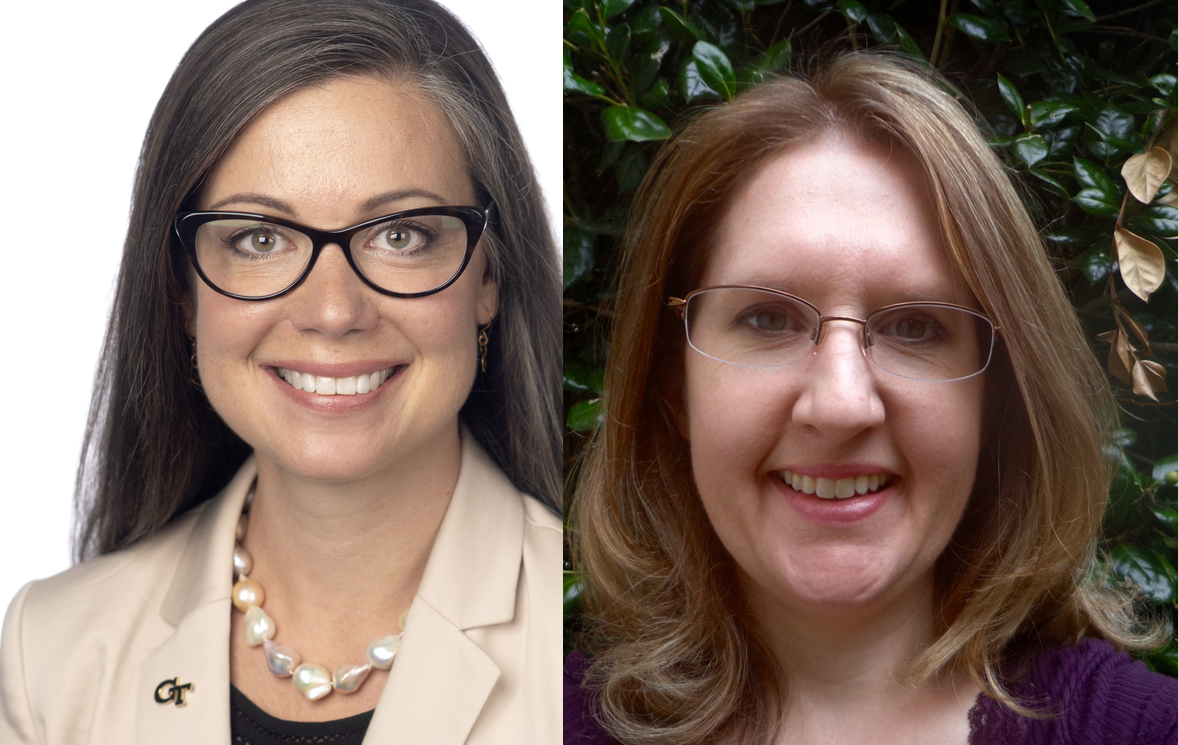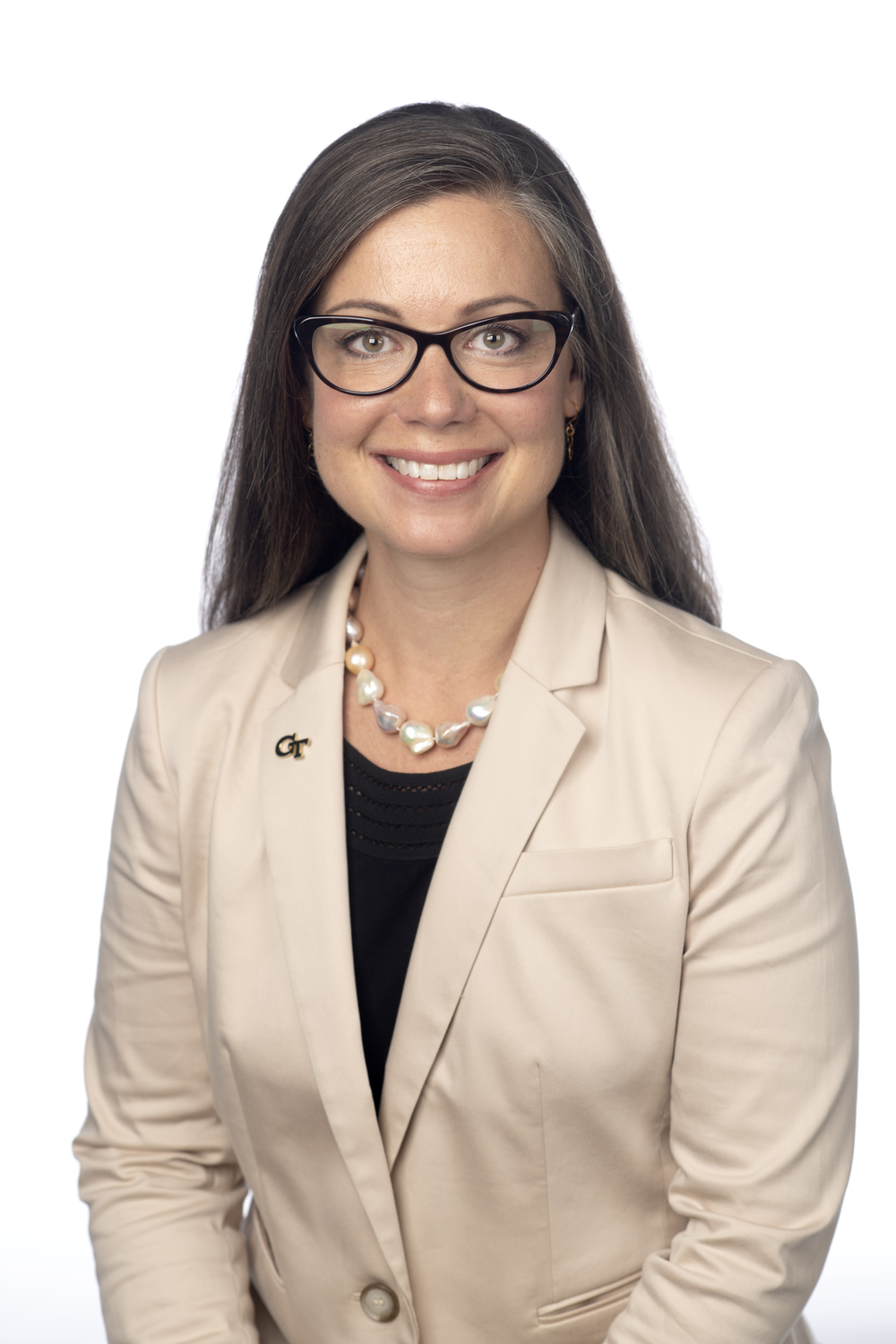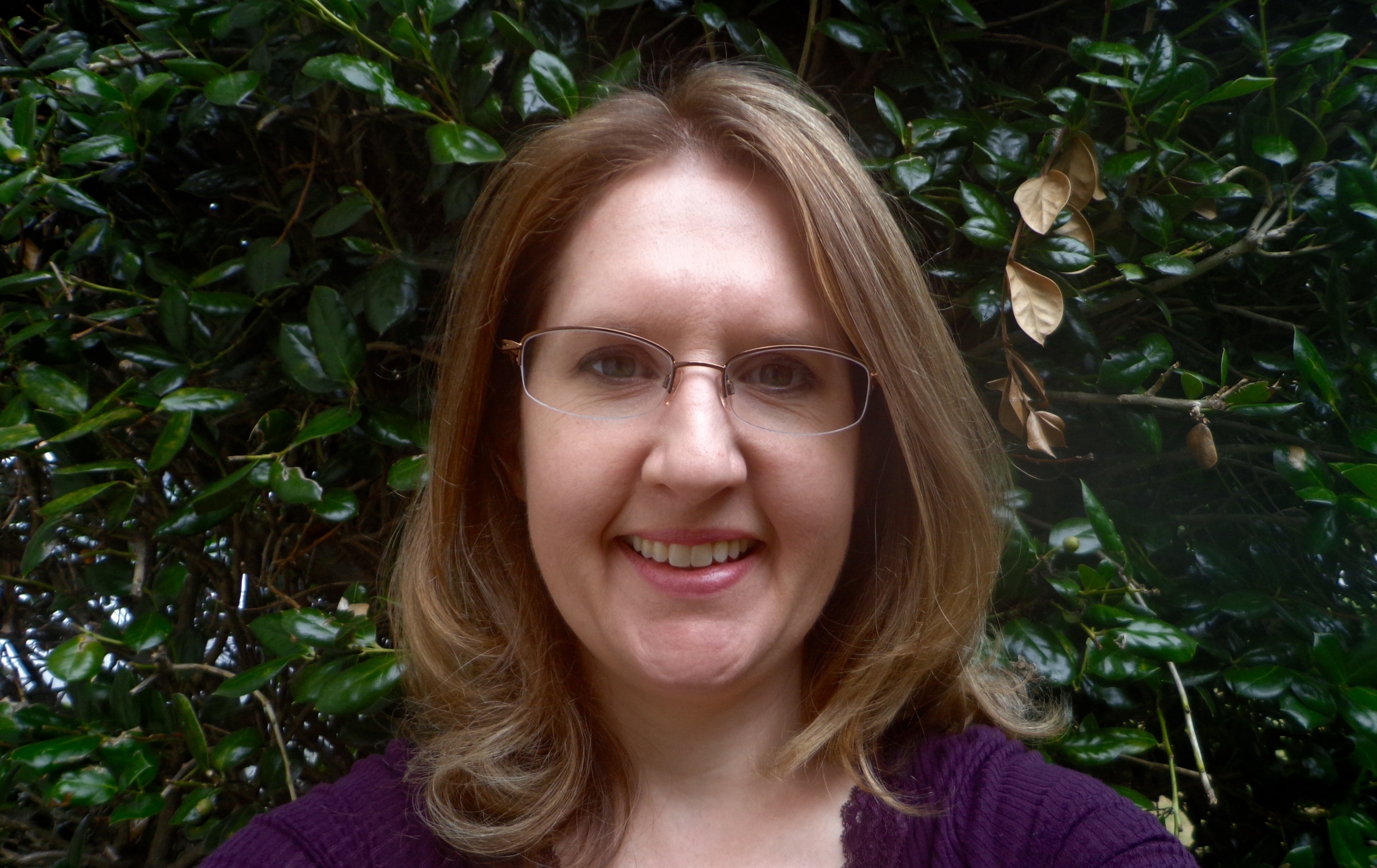
Jul 09, 2021 - Atlanta, GA
Jennifer Leavey and Carrie Shepler have accepted appointments as assistant deans in the College of Sciences Dean’s Office at the Georgia Institute of Technology effective July 1, 2021.
Leavey, named assistant dean for Faculty Mentoring in the College, also serves as principal academic professional in the School of Biological Sciences, director of the Georgia Tech Urban Honey Bee Project, and coordinator of the College’s educational activities related to science and sustainability.
"I look forward to helping faculty connect with others who will help them grow professionally and removing barriers that might be limiting their success,” Leavey shares. “I have benefitted from a number of excellent mentors in my 16 years on campus, and I hope to help others develop similar relationships."
Shepler joins the Dean’s Office as assistant dean for Teaching Effectiveness in the College, also serves as principal academic professional focusing primarily on undergraduate program initiatives in the School of Chemistry and Biochemistry, where she has directed the first-year chemistry program and other instructional activities.
“I am so excited that the College has chosen to emphasize its educational mission through the creation of this new role,” Shepler says. “I have always identified professionally as a teacher above all else, and it is a privilege to have the opportunity to share that passion on this scale.”
Through their roles as assistant deans, Leavey and Shepler join Laura Cadonati (newly appointed associate dean of Research for the College of Sciences, also effective July 1) in cultivating faculty members to develop and sustain excellence in scholarship and research, as well as creating an environment in which innovation, entrepreneurship, and public service are fundamental characteristics of graduates of the College.
Their collaborative leadership will execute key components of the College’s new strategic plan — focused on catalyzing discovery and solutions, amplifying impact, and building communities of excellence across the workplace, education and training, and research endeavors — to realize our shared mission and vision.
"The Dean’s Office is truly excited to have Jennifer and Carrie joining our team," says Matt Baker, associate dean for Faculty Development in the College. “Their talent, experience, and enthusiasm will allow the College of Sciences to tackle important problems that we’ve never previously had the bandwidth to address.”
Meet Jennifer Leavey
After graduating from Georgia Tech with a bachelor’s in chemistry in 1995, Leavey received her Ph.D. in immunology and molecular pathogenesis at Emory University. After conducting research fellowships in cellular immunology at the University of Georgia and Emory University, she joined the School of Biology (now the School of Biological Sciences) at Georgia Tech as an academic professional.
She has taken a leading role in the growth of the College of Sciences Explore Living Learning Community, serving as its faculty director. She has also developed innovative vertically-integrated projects (VIPs) including Living Building Science, which is based on the science around the Kendeda Building, and STEMComm, which promotes scientific communication through creative media about recent scientific discoveries and engineering innovations. Leavey has also served as director of the Bee-INSPIRED summer undergraduate research program at Georgia Tech.
Leavey has been recognized through a number of awards, including the Institute's Innovation in Co-curricular Education Award (2014) and the Class of 1940 W. Roane Beard Outstanding Teacher Award (2012). She has also served as principal investigator of multiyear awards to support undergraduate experiential learning from both the National Science Foundation (NSF) and the U.S. Department of Agriculture (USDA).
Meet Carrie Shepler
Shepler received her bachelor’s in chemistry and communication arts from Georgetown College in Kentucky, and completed her Ph.D. in environmental radiochemistry at Washington State University. Before joining the School of Chemistry and Biochemistry at Georgia Tech, she held instructional roles at Washington State and at the University of Georgia as a Franklin Teaching Post-Doctoral Fellow.
Shepler is the recipient of several awards including the College’s Eric R. Immel Memorial Award for Excellence in Teaching (2016) and the Institute's Class of 1940 W. Roane Beard Outstanding Teacher Award (2011).
"Carrie is widely recognized for her dedication to students and excellence in instruction," says David Collard, senior associate dean in the College of Sciences (CoS). "The creation of the assistant dean position to focus on teaching effectiveness has its origins in the recommendations of a CoS cohort of Provost's Teaching and Learning Fellows a couple of years ago,” he explains. “I can think of no one better than Carrie to lead the development of a robust program of peer-led review of instruction that fosters faculty development."
About the College of Sciences
The College of Sciences cultivates curiosity, encourages exploration, and fosters innovation to develop scientific solutions for a better world. Our connected community of scientists and mathematicians collaborates across disciplines and challenges to achieve excellence in science, teaching, and research. Working across six internationally ranked schools with the brightest young minds in our fields, we mentor future leaders to identify and push the frontiers of human knowledge, imagination, and innovation.
We nurture scientifically curious students by offering diverse educational and research experiences. As an internationally recognized, preeminent institution in the sciences and mathematics, we help students build empowering foundations in the sciences and mathematics — educating and preparing the next generation of scientists who will create the technologies of the future.
Most of the disciplines within our six schools — Biological Sciences, Chemistry and Biochemistry, Earth and Atmospheric Sciences, Mathematics, Physics, and Psychology — are ranked in the top 10%. We organize ourselves in multidisciplinary research neighborhoods to promote broad exchange of ideas. We also offer exciting opportunities for students to engage in research, and train with top professors in chosen fields.
Our internationally recognized senior faculty and an extraordinarily talented group of junior faculty are genuinely concerned about undergraduate and graduate education, and they bring the excitement of new discoveries in the research laboratory to the classroom. The quality of the faculty and the curriculum, combined with new state-of-the-art facilities and a low student to faculty ratio, ensure the excellent educational opportunities available to our students.
About Georgia Tech
The Georgia Institute of Technology, or Georgia Tech, is a top 10 public research university developing leaders who advance technology and improve the human condition.
The Institute offers business, computing, design, engineering, liberal arts, and sciences degrees. Its nearly 40,000 students, representing 50 states and 149 countries, study at the main campus in Atlanta, at campuses in France and China, and through distance and online learning.
As a leading technological university, Georgia Tech is an engine of economic development for Georgia, the Southeast, and the nation, conducting more than $1 billion in research annually for government, industry, and society.

